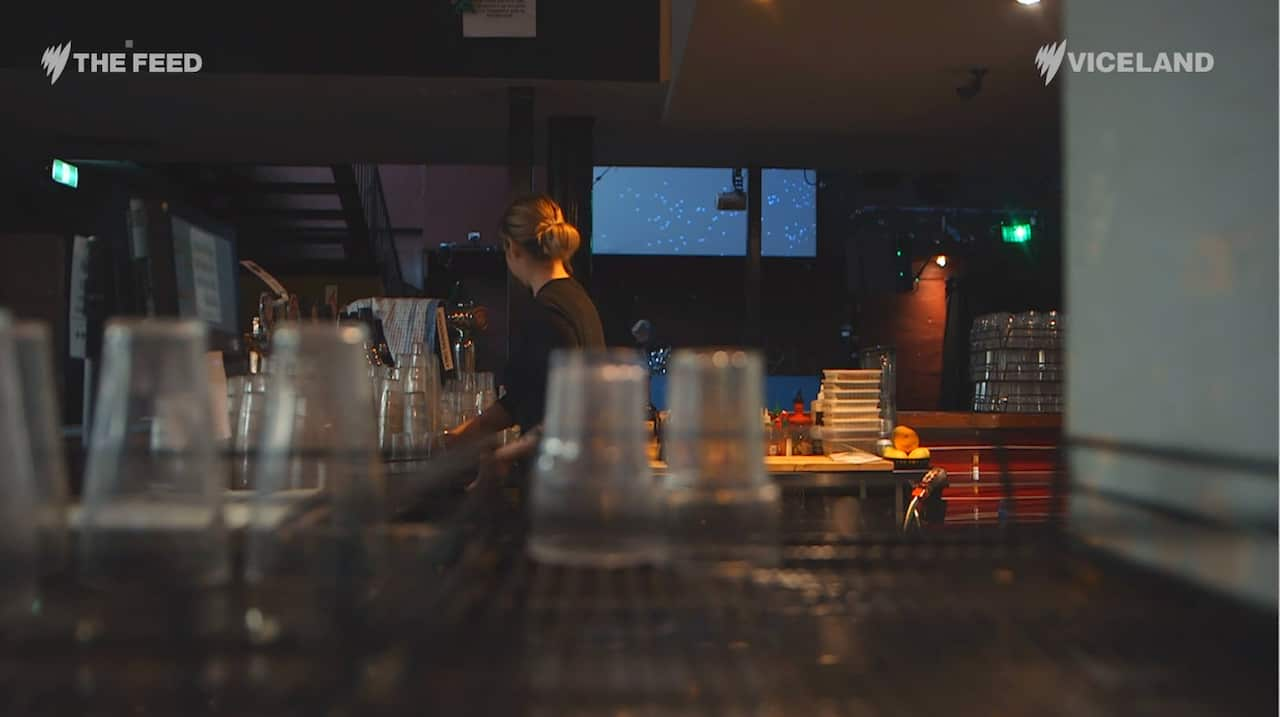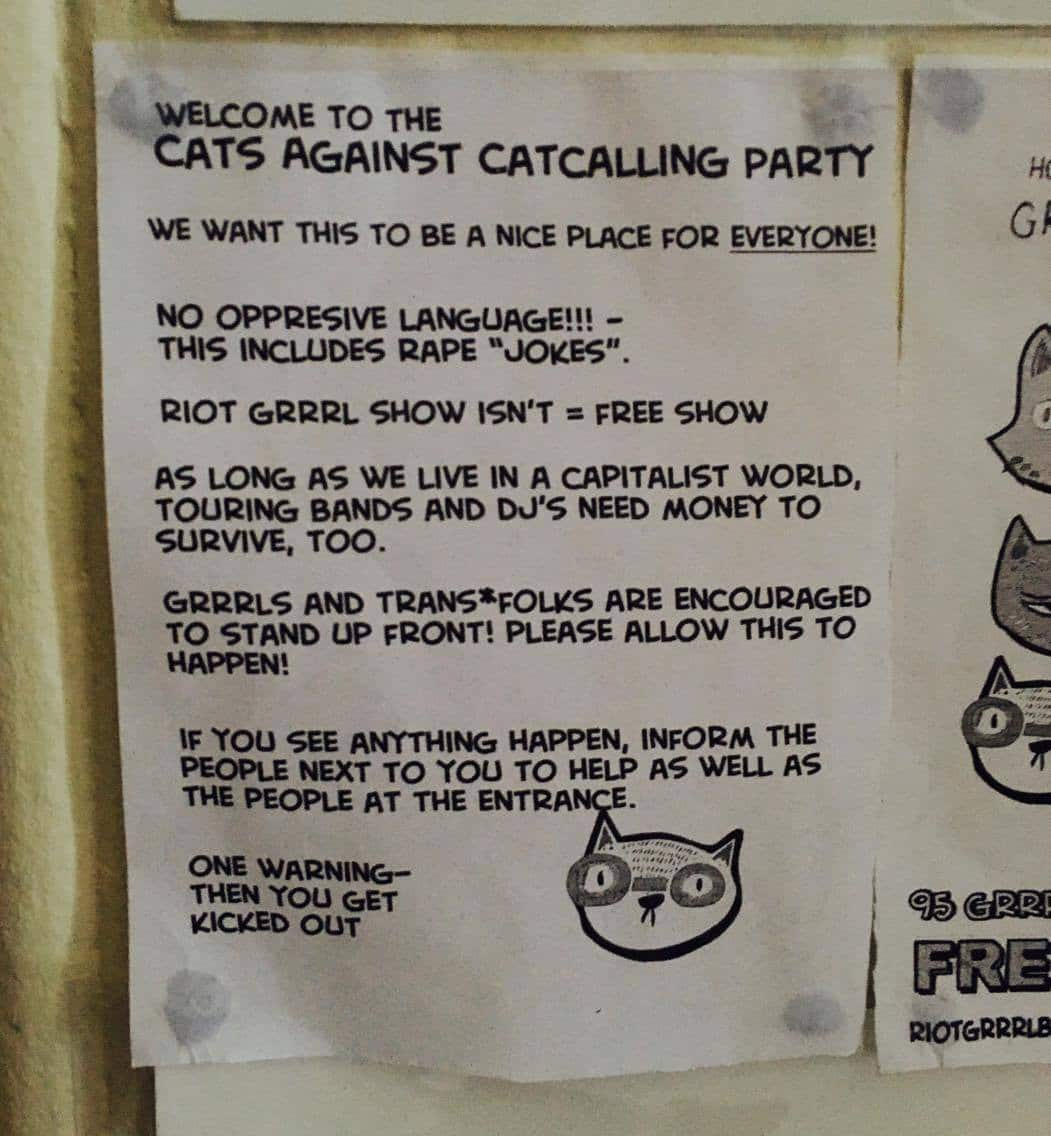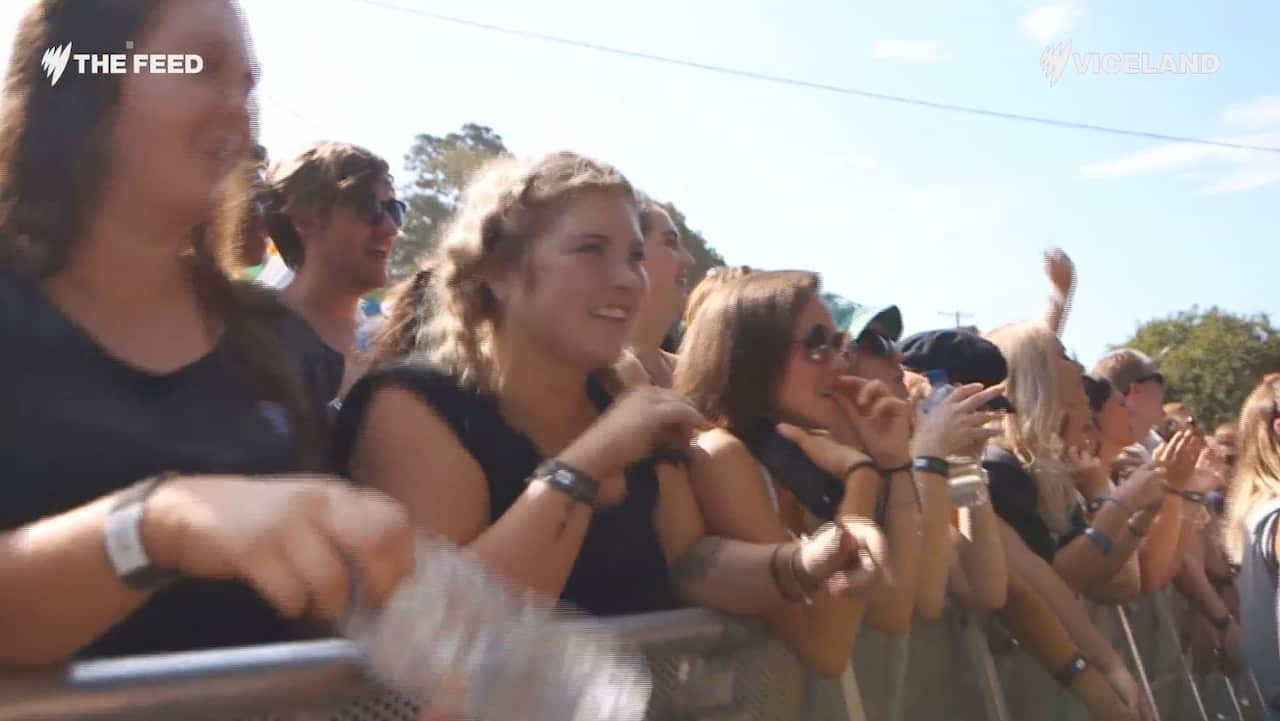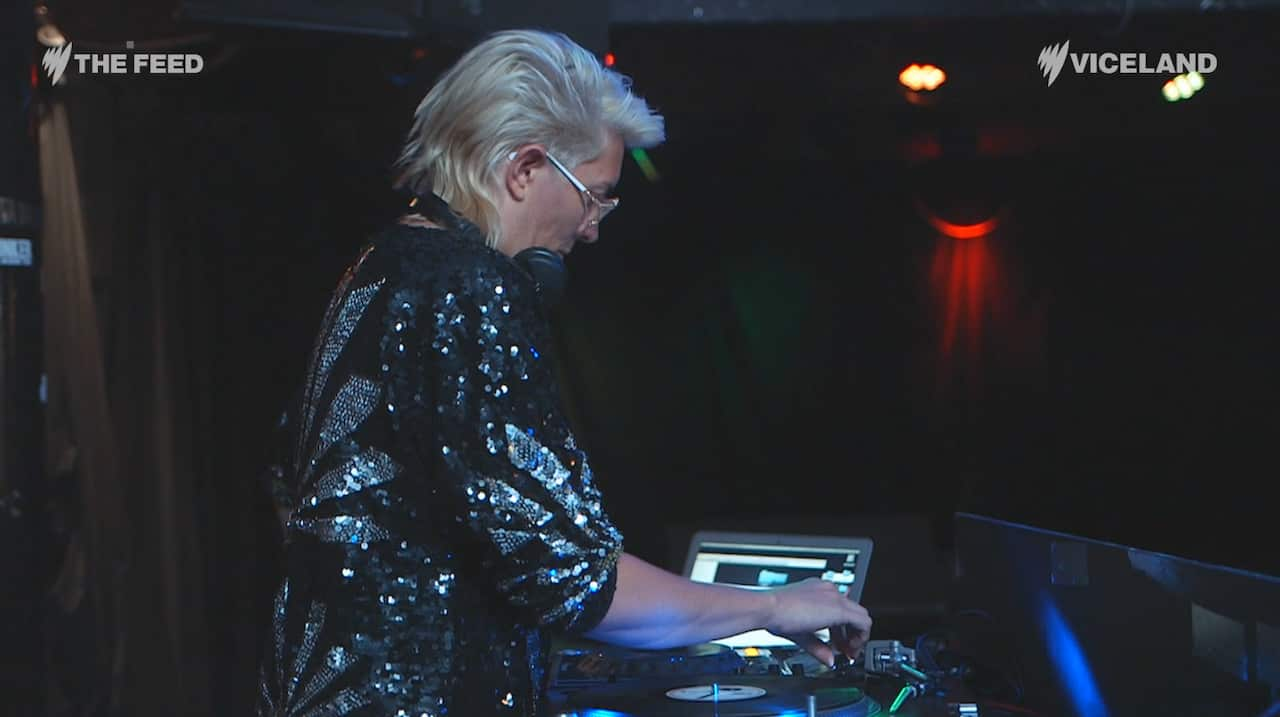But what makes a ‘safe’ venue? And how can owners, managers, promoters and staff go about making sure their punters are protected?
Katie Pearson has dealt with the ugly side of the live music scene first hand, having experienced sexual assault when she started out DJing at 21. She’s now the coordinator of Listen – a group that advocates for gender equality in the music industry across Australia – and started her work after seeing not only herself but countless other women impacted by the same kind of behaviour.
Change starts from the ground up and Pearson shared with us some important tips venues and festivals can start implementing to make a huge difference.
Get rid of gender-specific drink specials

“Free champagne for women on arrival, that promotes a culture of getting women really drunk and vulnerable,” says Pearson. She believes it’s crucial to promote a culture of respectful behaviour at gigs and it can start by changing the smallest of things: “like not having drink specials that give women free drinks and not men.”
Have a policy in place and make sure your staff know it
Pearson has found “most venues” don’t have a policy in place about how their staff should respond to instances of sexual assault. “If it’s a staff member whose never experienced this as an issue … generally they won’t know what to do,” she says. “It’s totally new for them. They don’t have a framework to respond appropriately and that has prevented a lot of women reporting in the past.”
For the past two years Pearson has been working on a taskforce with the Victorian Government that aims to tackle sexual assault and clear policy is a crucial aspect. “Through the taskforce we've drafted policy that venues can use … they can choose to adopt the policy. It’s a template, they can change it to suit their venue as all venues operate quite differently.”
Set a standard of behaviour

While the stats aren’t great – a recent survey of hundreds of young gig goers in Melbourne found 80.2 per cent of punters viewed unwanted sexual attention at gigs as being common - there have been some improvements in the past few years. Largely, Pearson says, from venues who have set a standard of behaviour. “A few more venues are getting better at identifying it as an issue since we’ve been talking about this for almost two years,” she says.
“Venues that are close to our network have been discussing it and trying to figure out their own ways of stamping it out. A couple of venues - The Old Bar in particular - recently put up a sign saying ‘this is what we don’t accept in our venue’. They’re trying to stop this behaviour by telling patrons what they won’t accept. That’s a really great idea and I love that initiative.”
Bring security guards up to speed

Security guards are often the first line of defence against incidences happening at venues and music festivals, so it’s crucial they’re well-versed in what to look out for. “Surprise” is one of the more common responses to reports of sexual assault at venues and Pearson says if we want the trend to disappear entirely, that needs to change.
“What I’ve found in the industry is that when people are experiencing sexual harassment or assault in a venue and they raise that with the venue through whichever channel they find easiest to get to or most comfortable to get to, the response is generally very varied and not in favour of the women’s experience,” she notes.
“Often with security guards - because of the lack of training - the response is they don’t understand what constitutes assault or harassment, so they won’t believe harassing behaviour is actually occurring. Too often they won’t do anything about it and say 'oh I’ll keep an eye on him, but I didn’t see it happen so there’s nothing I can do’. That’s a really common occurrence: I didn’t see it happen so it’s his word against yours.”
Respond appropriately

Treating the reports and incidences seriously, and responding appropriately, is super important to both the venue and the victim, say Pearson. “When venues don’t believe the story of the person who’s reporting that, it just adds to that trauma. They’ve put themselves out there and nothing has happened, and they’ve come away feeling more unsafe than they were straight after. Generally people are not going to lie about being sexually assaulted or harassed: there’s nothing to gain from that situation, it’s an incredibly stressful experience. Having to report that, actually putting yourself out there, and telling someone ‘this is happening to me, what can I do about it?’ takes a whole lot of strength and this is one of the reasons why it’s so underreported.”
Tune in to #TheFeedSBS at 7.30pm Monday - Friday on SBS Viceland, stream live, or follow us on Facebook, Twitter or Instagram.
Through award winning storytelling, The Feed continues to break new ground with its compelling mix of current affairs, comedy, profiles and investigations. See Different. Know Better. Laugh Harder. Read more about The Feed
Have a story or comment? Contact Us

